- From Faith Current: “The Sacred Ordinary: St. Peter’s Church Hall” - May 1, 2023
- A brief (?) hiatus - April 22, 2023
- Something Happened - March 6, 2023
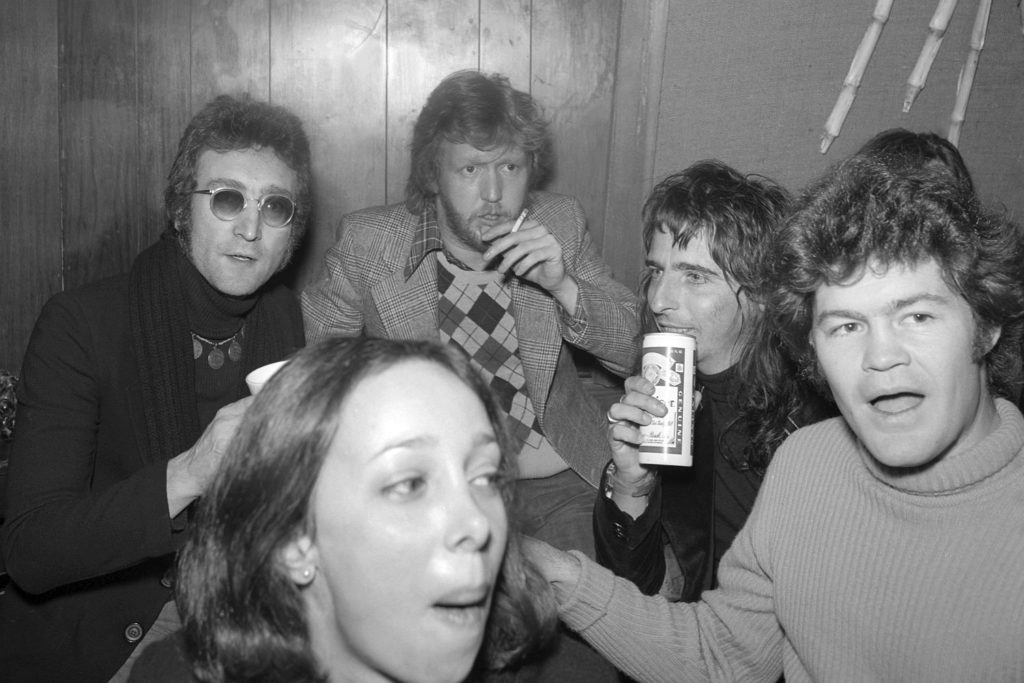
Frequent commenter @Hologram Sam provided this comment in one of our earlier threads. I commented, but as is usual these days had enough to say that I’m making a post out of it.
Pop over and read it. I’ll wait.
I feel obliged to point out that May Pang’s alleged statement tracks neatly with The Lives of John Lennon: John and Yoko as more a business entity than a couple, fulfilling their sexual/emotional needs elsewhere; May and Julian written out of the history; and Sam Havadtoy basically stepping into John’s spousal place immediately following his death, if not before.
(By the way, if you’re interested in Goldman, we’ve talked a lot about him here; this magisterial post by Devin is a good place to start.)
Some of why I called a halt to the earlier shenanigans on HD was simply that late-period Lennon is a drain not worth circling. We know all the basic outline, or should; it’s been freely available since 1987, and largely confirmed during the decades since. Yes, John was violent; yes, he was at least bi-curious; yes, his house-husband years were far from idyllic; yes, he looks like utter crap after about 1977. Let us either move on to what ELSE we think it all might mean, or talk about other, more pleasant topics. The last years of Lennon were not as they’ve been portrayed; but also they were Lennon’s own co-creation—both the circumstances and the myth promulgated in 1980. What does that say about Lennon? What new can we learn? To rage at Estate propaganda is an activity with diminishing returns. This is what Estates do, or this one, at least. We can only note that Goldman’s main points seem to be holding up; his meanness we can take issue with, but not his spadework.
So we know it. Now what?
Getting back to May Pang, I think she lives here in LA; I know that she’s been visible at Beatle-things. She is not silent, and God bless her for that—it’s all part of the soup, as George famously said about The Rutles. Factually it’s clear that the so-called “Lost Weekend” showed a Lennon returning to form as a functioning musician; the discography alone demonstrates this. And compared to the antics of serious boozers like Keith Moon, John’s escapades seem positively quaint; we only notice the Kotex on the head because four years prior, John was auditioning for Rock Gandhi. If Mickey Dolenz got kicked out of the Troub for heckling someone in 1974, it wouldn’t even make the LA Times. Rock stars gonna rock star.
Perhaps as the years pass, we’ll gain a more balanced view of the Ballad of John and Yoko. But if we do, I think we’ll have to acknowledge that the tools of the historian have not, in this case, served us well. The problem with the historical method—as with journalism, and (as we are seeing with Trump) the law—is that it doesn’t really have a way to deal with an intentionally distorted record. Certainly since the late 1800’s, history is an art masquerading as a science. The science part is real, and it can aid the art part, but the art part—what are facts, which ones to weigh most heavily, and how they are ordered—remains and shall ever remain the meat of the matter.
Certain people in certain jobs are legally required to maintain a clean datastream; the President, at least up until Trump, was required to preserve everything that crossed his desk. And social media helps with this; can you imagine what John Lennon’s Twitter feed from 1960-80 would reveal? Do you think it would match with the guy we know? (I don’t.)
The writing of history, sooner or later, devolves to an assertion of personal authority, and historians work to conserve this authority. That’s why, if you don’t have proof in forms that historians are comfortable with—a public statement, a memo, a photo, an affidavit, a story corroborated by a number of worthy people—that event is discarded. This does reality a disservice, and creates a bias in favor of power, and the status quo. One of Yoko’s major life goals has been to hoover up all the photos and documents regarding herself and her late husband. “And,” he said scarcastically, “certainly what she leaves behind will be an unedited, unaltered pile of data, not a carefully cultivated narrative for hand-picked historians to ‘discover,’ then claim as truth.”
This methodological flaw, which I have no answer for, is particularly clear when dealing with the things that people hide: Sex, money, wrongdoing. (Goldman is obsessed with these; ironically it’s the breathtaking grubbiness of his mind that has made Lives last.) Given that the pursuit of sex and money occupy much of our time here, and the pressure to pursue these frequently put us in ethically questionable territory—if not with the law, then perhaps with Mom—History’s polite elisions yield a grave distortion which does us no favors. Can you truly understand a person without knowing their sexual and financial lives? Can you honestly weigh their motivations? Look at your own life, and answer again.
History is simply facts arranged into a story, filtered through the storyteller’s experience and opinions. From these stories we are meant to glean lessons and other useful information, but because historians do not acknowledge the presence of the hidden or unprovable, their stories are at best entertaining adaptations, and at worst one of the main reasons humanity seems to learn so little as the centuries pass. History is not what happened—and I speak here as a recovering history addict. I love history, but the more I live, the less truth I think it catches; and the more it is simply a method by which we comfort ourselves, and reinforce the prejudices of our era. The price of that comfort can be very, very high.
As I said, I have no answers. Because there is so little at stake, comparing the Ballad to the reality is relatively painless instruction on something quite important. Beatlefans who take the lesson will be the better for it. Not happier, perhaps, but wiser.


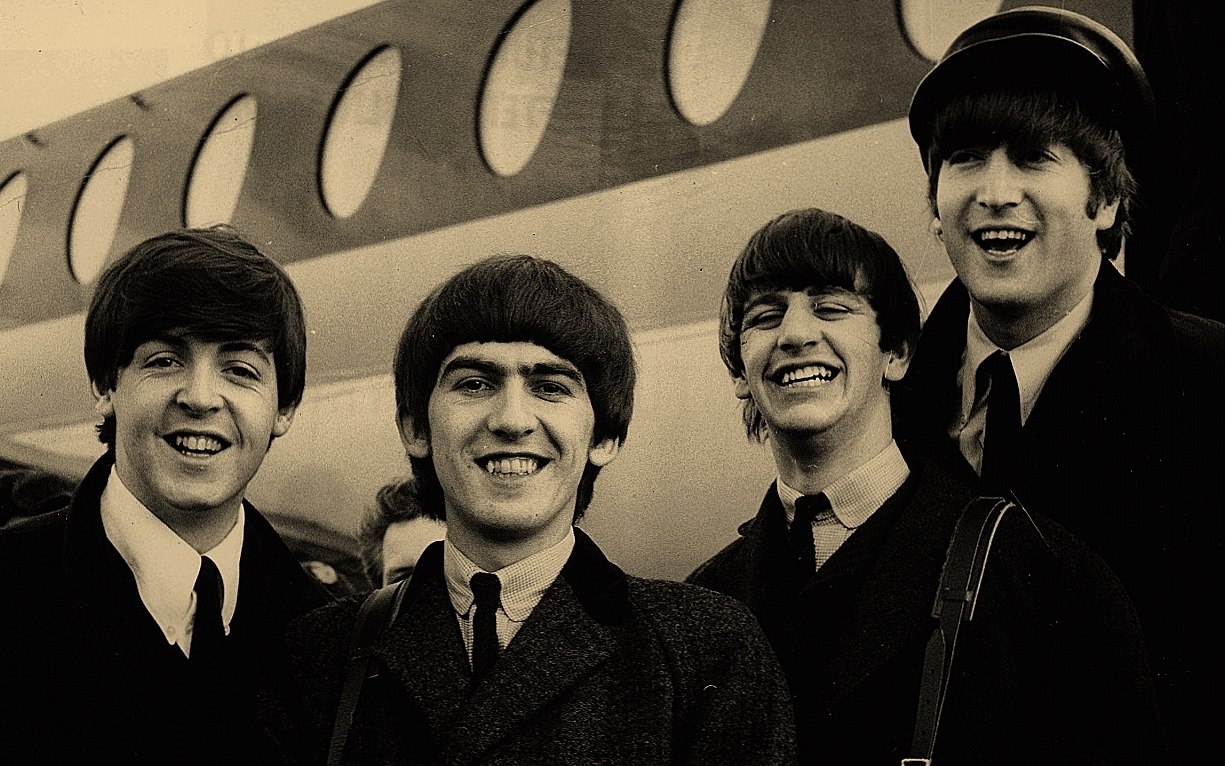
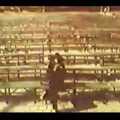


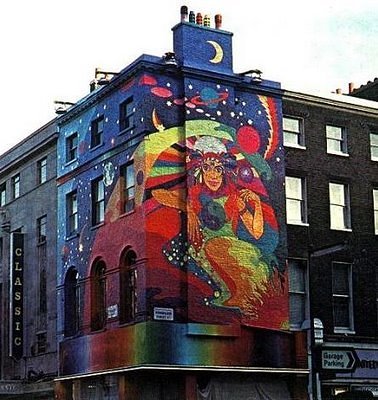

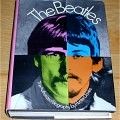

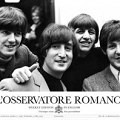
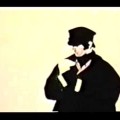

I’ve always thought that was one heck of a “weekend,” since it lasted for about a year and a half! And yep, history is always and inevitably a story, full of choices made by the constructor — some conscious and some not, some driven by the paucity of available data and some not.
.
For a surprisingly humorous take on how history is told, retold, and distorted, I highly recommend the recently-released film “Sword of Trust,” starring Marc Maron. The subject matter is the Civil War (or, ahem, the War of Northern Aggression), but the issues are universal.
“The last years of Lennon were not as they’ve been portrayed; but also they were Lennon’s own co-creation—both the circumstances and the myth promulgated in 1980. What does that say about Lennon?”
I’ll bite. I increasingly see what John was doing in 1980 as one of three things. The first is a kind of wish fulfillment. It’s pretty apparent that he was not a very happy person; I think that if he couldn’t actually live the life he wanted (due to his own untreated mental health issues, Yoko’s, and problems with being that famous, generally), then assiduously creating and projecting the appearance of domestic bliss and simplicity was almost as good. To bring up a frequent theme on this blog, it evokes to me the way that dysfunctional families will band together to present, to the outside world, the appearance of functionality (even perfection); given John’s history, it doesn’t seem out of the question that that was going on here. For someone who spent as much of his adult life in pretending, un-reality, or fantasy as John did, there might have been times in 1980 when he was inhabiting that role of the happy househusband with such gusto and relish that for a few brief moments, it fulfilled a deep longing or curiosity about what that type of life could be like — the way all forms of make-beleive do. (I’ll also note that I think this was going on, a lot, in John’s early Beatles lyrics. Yes, he was writing happy lyrics for the “meat market,” but I think all those songs about unconditional love, availability, and re-unification spoke to how deeply John Lennon wanted someone to “come home” or promise that whenever he needed, they’d “be there whenever he called.”)
Second, I think John missed being a Beatle. I think he missed having a division between his public self and his private self, with his public self being less dangerous, polarizing, complicated, and ugly than his private self was. I think he missed the more unconditional type of adulation that he received when that dichotomy was upheld. The aggressiveness with which he simplifies his public image–and bifurcates it from his private struggles–in 1980 suggests to me that he had belatedly realized how untenable it was to be an international celebrity treating the world like a therapy appointment while still being unwilling to truly lay everything bare to the public’s prying eyes.
Third – and this is an uncomfortable option given what ended up happening, so I won’t dwell on it for long – there’s a lot of evidence that John was generally aware of his own mortality and preoccupied with what his legacy would be. I think he wanted to be remembered as stable and happy, rather than as the walking raw nerve he was in 1972.
How does this fit into Michael’s excellent post? Well, John was engaged in precisely the arranging of facts into a story, preemptively, that everyone from 1981 through about 2012 used as his starting point, with the exception of a dedicated few, like Goldman, whose own preoccupations, neuroses, or direct contact with Lennon led them elsewhere.
So much to address in this great comment.
I wonder: was “Double Fantasy” a clue for us all? Both of them J&Y, imagining their fantasy version of the other? Their fantasy, and ours? Or theirs being made into ours? I’m amazed I’ve never read this theory. The wordplay is very Lennon, as is the secret-in-plain-sight (remember this is the guy who sneaked “tit” into “Girl” and “pousse” into “Number #9 Dream.”
My other thought before I jump into the shower is that I think he was ever-vigilant about what he thought “would sell”—-Lennon’s never doing anything without also thinking how it will play to his fans; when he designed to play the game, it was desperately important to his ego that he win. A great love story, a love story for the counterculture age, that would sell better than the middle aged blahs.
Oh I lied, one more thought:
“…treating the world like a therapy appointment while still being unwilling to actually go to therapy, because that would require him laying things bare to himself, facing up to some stuff, admitting mistakes, realizing that he was neither a loser nor Lord God Almighty, and changing his life.”
FTFY, as the kids say. 🙂
I think a lot of John’s struggles with writer’s block would have been fixed with therapy. The two times post-LSD that he has a therapy-type experience, India and primal scream, the songs gush out of him.
“The writing of history, sooner or later, devolves to an assertion of personal authority, and historians work to conserve this authority. That’s why, if you don’t have proof in forms that historians are comfortable with—a public statement, a memo, a photo, an affidavit, a story corroborated by a number of worthy people—that event is discarded. This does reality a disservice, and creates a bias in favor of power, and the status quo.”
Mmmmmmmmmm. This was music to my ears! I think Beatledom’s current greatest threat to the truth right now – for those very reasons -is actually Mark Lewisohn. He has been making the rounds lately, 100% evangelizing the Ballad of John & Yoko. Like….. 100%. Like… INSISTING that John never actually had a heroin habit (!!!!) and that he was “brave” for writing Cold Turkey because it was about something he’d never actually experienced (which…. if that was true- which it fucking ISN’T- wouldn’t that make John just… a LIAR? Or at minimum a huge fucking poseur??).
If Lewisohn was just some rando writing yet another bio, this would’t be such a big deal. But it seems like the OVERWHELMING MAJORITY of Beatledom considers him unimpeachable.
What the actual FUCK?
Remember, he needs access.
And even if Lewisohn is personally fearless in this regard, he could have little to no knowledge of addicts and addiction. He could be ignorant of how clear it is the Lennon abused basically every drug he came into contact with, from lager to Prellies to the little mortar on his sunroom mantel, and how that all makes it vanishingly unlikely he avoided heroin, or only sniffed it, or wasn’t an addict.
Also, remember Lewisohn’s British; far too many Brits still think of addiction as a moral failing, and only really applying to the bum, not the rock star.
Sure. Plus he does’t have access to experts, doctors, psychiatrists, or you know… the internet.
Ahhhhhh “rock stars!” Yes, they’re so much better than the rest of us dummies, I keep forgetting. 🙂
We must remember that for some fans, it’s very important that these four people not be people like the rest of us.
On that note, I thought this broadly correct article was refreshing in acknowledging the elephant in the room in 1969. We need more of this, not only to have a clear view of what happened during the breakup, but to learn the right lessons about the Beatles’ story—things that can be applied to the lives of people other than John and Yoko (such as: celebrities are not able to beat heroin just like that, while mere mortals relapse).
https://www.salon.com/2019/02/15/in-1969-the-fifth-beatle-was-heroin-john-lennons-addiction-took-its-toll-on-the-band/
Michael, thanks for that link — it’s good to see heroin being recognized for the malignant factor it was in the Beatles’ last years and in the “John & Yoko” story.
.
I want to repost this link to an earlier Hey Dullblog piece on the Beatles and drugs, since it seems relevant to this discussion and there’s a lot of interesting conversation in the comments. [Also, a question: are you the same “Michael” that is part of this earlier thread, or not? It’s a “Michael” with no last initial, so I can’t tell!]
Yes, that’s me!
Gives me a chance to say I’ve found your comments insightful for years! 🙂
Before I read, where is it incorrect?
It dates Lennon’s comment about “being in shades and on fucking junk” with Dylan to 1969; John was describing being in Dylan’s limo in 1966. (Which begs the question, was John on smack that day? Or did he mean Dylan, who almost certainly was? Or was it his bad memory?)
Michael, would you write an actual post about this Salon piece, please?
BTW, I’m looking at an article in Rolling Stone that says he was probably pulling the interviewer’s leg about the heroin in 1966. On the one hand, it’s RS on Dylan, which is just as trustworthy as RS on Lennon. On the other, Dylan in ’65 and ’66 seems more like a speed freak than a junkie.
I heartily second this request! Michael B., please write it!
@Michael @Nancy I know what I’m doing this weekend 😉
Re: Dylan – I’ve read a couple of biographies and read a few threads on fan forums to conclude that Dylan was wired on speed *and* heroin by 1966, sadly. Like John, he was never the same again (although his creativity didn’t seem to fall of a cliff the way John’s did in ‘69).
Great discussion!
Jack Douglas, who was producer on Double Fantasy, has said John was planning on working with Paul again. He was looking forward to it, and while he loved The Beatles, he didn’t regret the breakup. He did however, regret he and Paul’s estrangement.
Of course, John was killed, and we never knew this. It wasn’t part of the “story” that was put out there.
I often wonder if John has lived, would be have eventually came clean about his life as a house husband? Would he and Yoko eventually divorce? Would he then be compelled to bust the myth of “John and Yoko”, like he did The Beatles?
I seem to remember reading that Yoko was looking into divorce in 1979.
“One of Yoko’s major life goals has been to hoover up all the photos and documents regarding herself and her late husband. “And,” he said scarcastically, “certainly what she leaves behind will be an unedited, unaltered pile of data, not a carefully cultivated narrative for hand-picked historians to ‘discover,’ then claim as truth.”
I was thinking, would Sean be willing to release the unedited, unaltered data? After Yoko dies, would he feel any responsibility or inclination, to tell the whole, unvarnished truth about his parents?
My guess would be that if you’re collecting the material–if you care that much about info control–you’re going to destroy stuff you don’t like. So I don’t think Sean would have the option.
Well, damn! Maybe Yoko has a box stashed in the back of her closet she forgot about. (Haha)
That’s what we’d have to hope for.
Or, really, we could just address all the source material we already have. There are no smoking guns out there, we already know 95% of what there is to know…about Lennon at least. That’s what makes the obsessive image-management so clearly a psychological endeavor. Which is Yoko’s right; she’s got the dough, and if it makes her feel more comfortable and in control, I see no real harm in it.
The only person that will be “harmed” by this is Yoko herself, because her legacy will be much less fascinating, and thus less durable, than it might be. The longer she waits, for example, before allowing a biography, the fewer people that will snap it up. For all the under-40s who think of Yoko as a feminist pioneer and sort of fairy Godmother of the New York scene, that’s a wan kind of fandom because it’s been so directed by her. It’s the difference between admiring someone and falling in love.
My instinct, which could be wrong, is that Yoko’s sanitizing her story will only make her be forgotten more quickly. I mean, John Lennon gets more “problematic” by the decade, and yet here we are, still speaking about him. Yoko has — for many reasons, some quite understandable — never really trusted the fans. She remains fundamentally opaque, and that’s not satisfying.
@Michael Gerber: And it’s in the context of that possible divorce that whatever pre-emptive history-writing was going on with Double Fantasy becomes particularly peculiar. Was it a way to throw people off the scent? A first step to lay the groundwork for a split? A private admission of defeat, dressed up for the public as the beginning of the second act of the world’s greatest love story?
That “Double Fantasy” might be a pun is a fascinating possibility. Whatever exactly it means, I think you’re right on the money that the title was intended to reflect some level of deception that was going on in 1980–whether it was an admission that John and Yoko were fooling each other, jointly fooling the public, both, or something else altogether. John was the last person who’d use such a cryptic title (who calls an album celebrating his marriage a “fantasy”?) and never think about double (no pun intended) meanings.
“He was ever-vigilant about what he thought “would sell”—-Lennon’s never doing anything without also thinking how it will play to his fans; when he designed to play the game, it was desperately important to his ego that he win.”
Absolutely, and I’d go a step further and say it probably hadn’t been as important to John’s ego that he “win” than at the time of his comeback since 1962/63. He had willingly cut off all momentum, stopped trying to write songs, gotten lost in heroin, etc. while jealously watching McCartney, Jagger, and Dylan enjoy second winds of commercial success (if not always artistic), not to mention guys like Paul Simon and Pete Townshend whom he never rated as equals. Here was John Lennon, Chief Beatle, the coolest and most dangerous guy at Quarry Bank and art school and Hamburg, sitting in his apartment like a drugged zoo animal. His ego, and his insecurity, demanded that when he come back, it be in a way that completely trounced his peers, the same way that it would never have been enough for young John for the Beatles to simply be one of the most famous bands in the world.
In that light, see the househusband/”no longer play the game” mythmaking as a way of trying to do that by changing the script, the same way that trying to become Jesus Christ in the late Sixties was a way of getting back at Paul for Sgt. Pepper: “you can’t judge me by the criteria of a rock star, because I, John Lennon, have *transcended* that plane of existence, and am drug-free, calm, and happy.” And that ties into another thought. What if the inspiration for the DF songs wasn’t genuine happiness, but the idea of making an album designed to make people think he was experiencing genuine happiness? In other words, what if it was every bit as much a concept album with songs written to tell a story as Quadrophenia or Tommy?
Addendum thought: it’s partly because of the preemptive history-writing John was helpfully doing in 1980 by mythologizing with a fervor not shown since 1969 that he’s remembered the way he is, and that it’s so hard to get people to realize his story was more complicated. If he has been assassinated in 1972, OD’d in 1968, or had a Bonham/Hendrix-type accident in 1974, we’d remember him first as a tortured soul who struggled with addiction and depression. Re-emerging after radio silence allowed John to compulsively begin writing the next chapter on his own terms; the tragic timing of his death meant that it was easy for the first draft of that ongoing mythmaking project to end up as the first draft of the historical John Lennon.
I think that’s exactly what was going on.
I must step forward here and claim ownership of the Double Fantasy Wordplay Theory. Here’s a comment I made in 2015:
The title Double Fantasy becomes another bit of John’s clever wordplay if a split was in the wind. “This whole thing we’ve constructed in front of you? It’s a double fantasy.”
https://www.heydullblog.com/1960s/1968/beatles-ashram-is-now-open/
In the future, please include ®2015 Hologram Sam after all references to this theory.
Seriously, though… maybe the charade (if it was a charade) of happy househusband was as much for the benefit of Paul as it was for the rest of us.
As far as J&Y having separate lovers… well, they weren’t the first couple to do that. I suspect their open marriage was not something designed to drive them apart. Maybe it was designed to keep them together. A necessary safety valve. They weren’t really breaking new ground with an open marriage. Some of our favorite writers and wits of the 1920s practiced free love (everyone from H.G. Wells to Heywood Broun) so maybe we shouldn’t read too much into J&Y. I’m glad they weren’t sneaking around. At least they were honest with each other, even if they were less than honest with the fans.
I think “Double Fantasy” might have had multiple meanings for Lennon and Ono, some more conscious than others. I believe they were their own major audience, in the sense that they were working to convince themselves how happy/fulfilled/united they were.
.
More than anything, what I hear in the songs on this album is emotional instability and/or wishful assertions that everything will be great now (“Starting Over.”) “Double Fantasy” also seems to me to say that there’s only room for two people in this constructed reality (back to the end of “God.”) And in Cleanup Time” Lennon refers to their being “no rats” aboard the ship of love, which goes right back to its being J&Y against the world.
.
In the end I think they were both struggling with very mixed feelings. If John hadn’t been murdered there’s no way of knowing what would have happened with that relationship, IMO.
Totally agree with this Nancy.
“Seriously, though… maybe the charade (if it was a charade) of happy househusband was as much for the benefit of Paul as it was for the rest of us.”
I think it was a charade. I also agree it was for Paul as well as the public. After all, Paul did find peace and contentment living with Linda and the kids in Scotland.
“ I look high, I look low,
I looking everywhere I go,
Looking for a home in the Heart of the Country.”
@Sam, forgive me — that’s a fascinating theory and shall henceforth be credited. In all media, worldwide. 🙂
Always impossible to judge other people’s marriages, and people should keep two things in mind when I do that with ol’ J&Y:
1) They made their marriage an integral part of their public personae from 1969 on. They insisted people consider them a unit, and so the health and well-being of that unit becomes germane when you’re talking about things that generally don’t touch on people’s marriages.
2) in general, certainly after 1980, commentators have been too willing to take the conventional view as gospel — because we feel sorry for John and for Yoko, we want them to have been happy, and have given sources like Elliot Mintz too much credence, while giving the opinions of retainers and hangers-on too little.
As to the openness of John and Yoko’s marriage, it needs to be put in several contexts. The first is the overwhelming closeness and intensity of the early years; are those two people likely to, ten years later, be happily polyamorous? Yes the early years were claustrophobic, but that’s the action of two people craving permanence and focus from the other, probably to re-parent themselves. How likely was that process so finished, and so completely successful, by the late 70’s? I’d say it’s more likely that after the NRE wore off, thy became disenchanted with each other, their old patterns returned, and rather than splitting or working through them (almost impossible to do this without outside counsel of some sort, imho), they slid into a companionate marriage. Which is fine if it worked for them…but did it work for them?
2) it’s axiomatic that successful polyamorous arrangements require a lot of openness and communication between all parties involved. As much as I want to believe they could’ve made it work, neither John nor Yoko seem to have these skills in abundance. And in fact a lot of the sources portray a marriage where John cannot even get Yoko on the phone. Remember that John’s vacation in 1980 was solo, for example.
On the other hand, horses for courses. I guess all I’m saying is: If you described this marriage to Dan Savage, I think he would see a lot of red flags in it.
Also: poly people are notoriously talky about it. If John and Yoko had pulled that off and were each soaking in New Relationship Energy, I don’t think John could’ve kept it to himself. I think he would shouted it from the mountaintops, as he did with other things.
But for their sake, Sam, I hope you’re right. Because clearly that was going on. I hope it was mutually satisfying and fun, and not a source of pain. Those two needed as much love and connection and de-alienation as possible.
@Michael Also, John and Yoko had much more in common with dissolute European aristocrats than California hippies; it’s highly unlikely their late 70s marital arrangement, whatever it was, happened with intentionality.
[…] How “Lost” Was My Weekend? July 30, 2019 […]
I love John’s lost weekend period. He didn’t seem lost at all, but in high spirits. Here is an interview that was just posted on YouTube. Charming, relaxed and relatable as ever!
https://www.youtube.com/watch?v=skZ5cQrFEq0